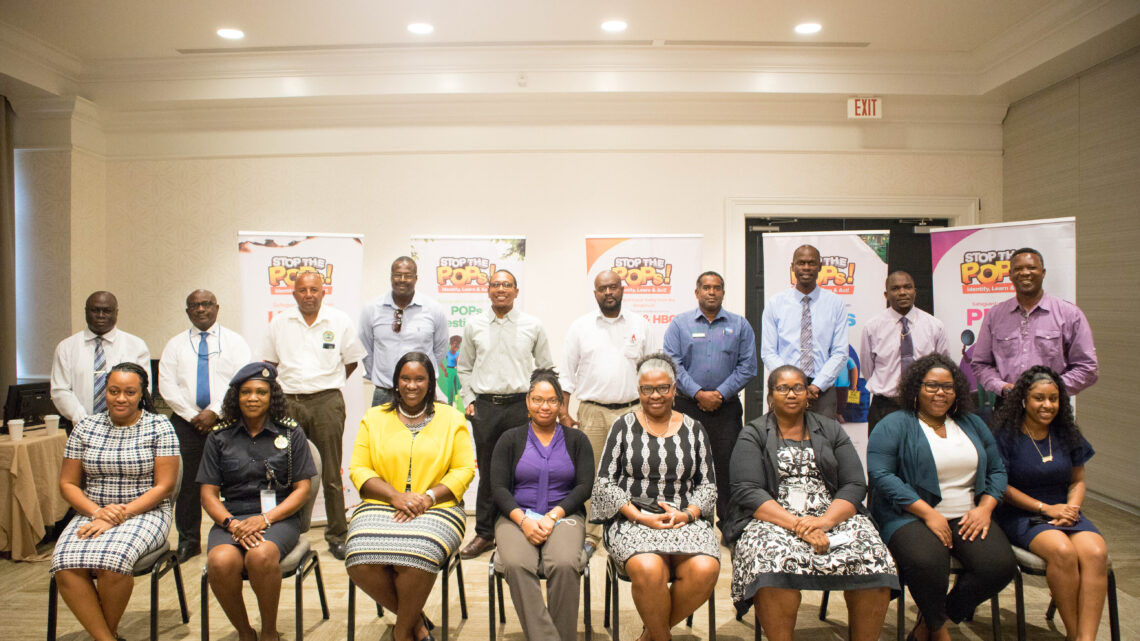
Basseterre, St. Kitts, March 15, 2022 (SKNBS): As the Global Environment Facility (GEF) 5558 Project titled “Development and Implementation of a Sustainable Management Mechanism for Persistent Organic Pollutants (POPs) in the Caribbean”, nears completion, the Basel Convention Regional Centre for Training and Technology Transfer for the Caribbean Region (BCRC-Caribbean), in collaboration with the St. Kitts and Nevis Bureau of Standards (SKNBS), hosted a National Lessons Learnt Workshop for the project on Monday, March 14, 2022, at the St. Kitts Marriott Resort & Royal Beach Casino.
The objectives of the workshop were to:
- Review and share information on the major project activities and outcomes in the context of Saint Kitts and Nevis
- Review and discuss the issues and challenges encountered and mitigation measures (BCRC-Caribbean and PWC perspectives)
- Review and discuss recommendations for successful execution of similar national and/or regional projects
- To promote continued cooperation on the way forward
During his remarks at the workshop, Dr. Alfredo Cueva, Industrial Development Officer, United Nations Industrial Development Organization (UNIDO), said he is grateful to the participating countries and the national stakeholders for their contributions, both for the financing and the implementation of the project.
Dr. Cueva stated that UNIDO is a specialized agency of the United Nations that promotes industrial development for poverty reduction, globalization, and environmental sustainability.
“Therefore, this event, outcome and project fully aligns us with our mission of promoting and accelerating inclusive and sustainable industrial development in our member states,” he said. “Indeed, UNIDO supports the three pillars of sustainable development, the 2030 Agenda for Sustainable Development and its related Sustainable Development Goals (SDGs) in particular SDG #9, which calls for building resilient infrastructure, promoting inclusive and sustainable industrialization, and fostering innovation.”
Ms. Jewel Batchasingh, Director, BCRC-Caribbean, who also spoke at the event, said that the lessons learnt workshop was essential as it allowed all stakeholders to see the individual components of the entire project and to provide feedback on pitfalls and triumphs.
The BCRC-Caribbean Director spoke to the various accomplishments coming out of the project.
“For the waste technocrats, they saw the submission of the updated National Implementation Plan in keeping with the St. Kitts and Nevis commitment under the Stockholm Convention; for the customs personnel, the Training Modules, and the Component 1; for the chemistry aficionados, Schematic Areas 3 and 4; for the lawyers, legislative components and development of the Model Act,” she said.
“All would have supported in the development of the ‘Stop the POPs’ campaign and I always remember when we first launched, so it was quite emotional to see that dream become a reality,” she continued.
Ms. Batchasingh noted that the centre seeing the vision of the POPs database come to life and then building the in-house capacity and becoming the clearing house mechanism for waste and chemical data, forms an integral part the centre’s vision.
Over 25 professionals from governmental and non-governmental agencies in both St. Kitts and Nevis participated in the one-day workshop.
Background
The Basel Convention Regional Centre for Training and Technology Transfer for the Caribbean (BCRC-Caribbean) has been the project’s implementation agency for the past six (6) years.
The project was carried out in collaboration with the SKNBS as the Stockholm Convention Focal Point and GEF 5558 National Project Coordinator (NPC) on behalf of the Government of the Federation of Saint Kitts and Nevis and was funded by the Global Environment Facility (GEF) and implemented by the United Nations Industrial Development Organization (UNIDO).
As a signatory to the Stockholm Convention, the Government of the Federation of Saint Kitts and Nevis benefited from this project, which aimed to strengthen regional capacity to manage POPs and UPOPs through institutional strengthening, human resource capacity building, and the installation of infrastructure and management systems in the eight (8) participating countries.
The preparation and frequent update of a National Implementation Plan (NIP) that covers POP management is one of the Convention’s duties. Following the update of the Saint Kitts and Nevis NIP in 2018, the government and national stakeholders benefited from several other project outcomes, including the development of a regional model Integrated Chemicals Management Act, a public education and awareness strategy and toolkit, and training on a variety of topics related to environmentally sound POP management.
-End-
